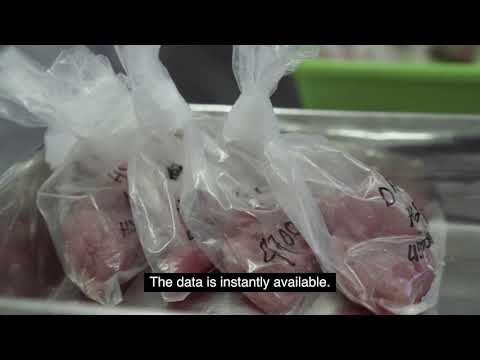
Cirque du Soleil® Explores Augmented Reality, Powered by SAP Innovation Center Network
December 16, 2018
New KB articles published for the week ending 8th December,2018
December 16, 2018Oracle Arms Developers with the Most Comprehensive Cloud Native Framework
Oracle Cloud Native Framework provides deployment models for Oracle Cloud Infrastructure, hybrid cloud and on-premises users
KubeCon, Seattle, Was.—Dec 11, 2018

Oracle today announced the Oracle Cloud Native Framework, providing developers a cloud native solution that spans public cloud, on premises and hybrid cloud deployments. Capitalizing on Oracle Cloud Infrastructure and the recently announced Oracle Linux Cloud Native Environment, the Oracle Cloud Native Framework introduces a rich set of cloud native managed services and on-premises software. The Oracle Cloud Native Framework also introduces Oracle Functions, a new breakthrough serverless cloud service based on the open source Fn Project.
As organizations move to the cloud, they are facing new and difficult challenges addressing cultural change and increased complexity. DevOps and cloud native tooling have left many developers and projects behind the curve. Moreover, organizations eager to use standard open source components and leverage cloud capabilities, but are impeded by the number of complex choices, lack of training and fear of cloud vendor lock-in. By providing cloud native capabilities and offerings regardless of the deployment scenario and leveraging open standards established by the Cloud Native Computing Foundation (CNCF), Oracle, a platinum member of CNCF, is uniquely providing its customers with choice while meeting the broad deployment needs of developers.
“With the growing popularity of the CNCF as a unifying and organizing force in the cloud native ecosystem and organizations increasingly embracing multi cloud and hybrid cloud models, developers should have the flexibility to build and deploy their applications anywhere they choose without the threat of cloud vendor lock-in. Oracle is making this a reality,” said Don Johnson, executive vice president, product development, Oracle Cloud Infrastructure.
To further enable developers to build and deploy modern applications, Oracle is introducing a rich set of first class Oracle Cloud Infrastructure services built on Oracle’s Gen 2 Cloud IaaS and existing foundational Kubernetes orchestration and management layer, the Oracle Container Engine for Kubernetes (OKE). These new offerings are focused on three critical Oracle Cloud Infrastructure cloud native layers:
-
Application Definition & Development
- Oracle Functions: Scalable, multi-tenant serverless functions that let users focus on writing code to meet business needs without having to know about any infrastructure concepts. Users only pay when a function is invoked, but pay nothing when the code is not running.
- Streaming: A highly available, scalable and multi-tenant streaming platform that makes it easy to collect and manage streaming data. Streaming enables applications such as IoT, security and supply chain, where large amounts of data are collected from many sources and need to be processed in real time.
-
Provisioning
- Resource Manager: A managed service that can provision all Oracle Cloud Infrastructure resources and services. Resource Manager reduces configuration errors and increases productivity by managing infrastructure declaratively (i.e. “infrastructure as code”) using industry standard Terraform.
-
Observability & Analysis
- Monitoring: An integrated service that reports metrics from all resources and services in Oracle Cloud Infrastructure. Use predefined metrics and dashboards, or use the service API to obtain a wholistic view of the health, performance, and capacity of the system. The monitoring service includes alarms to track these metrics and take action when they vary or exceed defined thresholds. Alarms provide a critical service to help users meet service level objectives and avoid interruptions.
- Notification Service: A scalable service that broadcasts messages to distributed components, such as email and PagerDuty. With the notification service, users can easily deliver messages about Oracle Cloud Infrastructure to large numbers of subscribers through a publish-subscribe pattern.
- Events: An offering that enables users to react to changes in the state of Oracle Cloud Infrastructure resources, both when initiated by the system or by user action. Events can store information to Object Storage, or they can trigger Functions to take actions, Notifications to inform users, or Streaming to update external services.
With the announcement of Oracle Functions, a new breakthrough serverless solution based on the open source Fn Project, developers can easily deploy and execute function-based applications without the need to manage compute infrastructure. Oracle Functions is Docker container-based and completely pay-per-use, so charges are incurred only when functions are run. The underlying Fn Project, which Oracle Functions offers as a fully-managed service, can run on-premises, in a data center, or on any cloud. The Oracle Cloud Native Framework supports both modern (cloud native) and traditional (WebLogic, Java, and database) applications. The enterprise grade platform can be leveraged for sustainable strategy, managed services, and curated OSS.
-
“Kubernetes and containers are enabling CERN to improve the deployment of critical Java Applications to reduce maintenance tasks and focus more on developers’ needs, including improving their experience with Oracle WebLogic Server. In this context, Oracle has provided us with an open source tool that has helped us decrease considerably the time needed to configure WebLogic. We are also working to take advantage of Oracle Cloud Infrastructure and its Kubernetes offering to replace our disaster recovery solution for our databases and WebLogic,” said Antonio Nappi, DevOps Engineer for CERN.“Our business relies on delivering innovative software solutions to a global market. Oracle Container Engine for Kubernetes on Oracle Cloud Infrastructure has helped us not only converge data centers and add scale, but also significantly improve performance and security as we adopt a microservices architecture. It’s actually been the simplest part of our migration,” said Jason Looney, vice president of Enterprise Architecture, Beeline.“Sauce is a video collaboration and creation platform for teams, empowering brands to create authentic video content. Oracle Container Engine for Kubernetes on Oracle Cloud Infrastructure has helped us scale our cloud technology, supporting our global growth while increasing reliability and performance, especially in the areas of video transcoding and creation. Getting started on Oracle Container Engine for Kubernetes was a breeze and now our team can develop and deploy faster than ever,” said Jon Girven, co-founder and CTO of Sauce Video.“Gapsquare is a cloud-based SaaS solution that helps large companies maintain continuous fair pay by closing the gender pay gap, ethnicity pay gap, and any equal pay issues. By moving to the Oracle Cloud completely, we have been able to reduce time spent on DevOps and focus on implementing new features. We found Oracle Container Engine for Kubernetes to be the easiest way to reliably deploy our application on a scalable and distributed environment, while continuing to deliver new automatic features that require no maintenance. This has allowed us to speed time to market for new offerings and rapidly expand globally,” said Zara Nanu, CEO of Gapsquare, and a member of Oracle’s global startup program.
Contact Info
About Oracle Cloud Infrastructure
Oracle Cloud Infrastructure is an enterprise Infrastructure as a Service (IaaS) platform. Companies of all sizes rely on Oracle Cloud to run enterprise and cloud native applications with mission-critical performance and core-to-edge security. By running both traditional and new workloads on a comprehensive cloud that includes compute, storage, networking, database, and containers, Oracle Cloud Infrastructure can dramatically increase operational efficiency and lower total cost of ownership. For more information, visit https://cloud.oracle.com/iaas.
About Oracle
The Oracle Cloud offers complete SaaS application suites for ERP, HCM and CX, plus best-in-class database Platform as a Service (PaaS) and Infrastructure as a Service (IaaS) from data centers throughout the Americas, Europe and Asia. For more information about Oracle (NYSE:ORCL), please visit us at www.oracle.com.
Trademarks
Oracle and Java are registered trademarks of Oracle and/or its affiliates. Other names may be trademarks of their respective owners.




